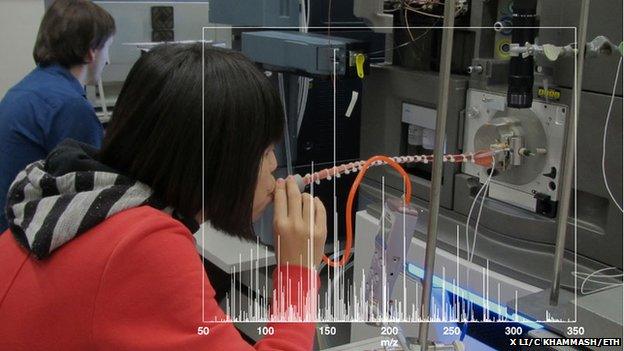Electronic nose 'sniffs faeces to detect infection'
- Published

Sniffing faeces with an "electronic nose" can detect strains of bacteria that can cause deadly infections, say UK researchers.
The tool was able to sniff out different types of Clostridium difficile based on the stinky chemicals they released.
The team at the University of Leicester say the findings could be useful for screening patients in hospital.
The study was published in the journal Metabolomics.
Electronic noses are already being investigated for cancer, by looking for the unique smell of the chemicals produced by a lung or breast tumour.
The team in Leicester investigated whether different strains of C. difficile, some of which cause disease, had a different chemistry that could be detected by the e-nose.
They showed that different levels of methanol, sulphur compounds and others were produced by the 10 different strains tested in the study.
Screening
One of the research team, Prof Paul Monks, told the BBC: "By smelling different strains of C. difficile we could tell which are good and which are potentially bad, which leads to the question, 'Can you screen patients?'
"We've shown it is possible to do it in the lab - the next thing we need to do is in bedpans. We can [put the e-nose] on the side of bedpan washers as you start the cycle, sniff it and then say, 'You may want to look at that patient'."
In 2012 there were 1,646 deaths involving C. difficile infection in England and Wales.

Previous research has looked at the unique components of people's breath.
The electronic nose uses a device that can measure the mass of thousands of chemicals every second, called a mass spectrometer.
A recording of each chemical present in a sample acts like a fingerprint.
As well as being able to identify which strain of bacterial species is present, the researchers believe understanding more about the chemistry of bacteria could help understand why some cause disease and others do not.
Dr Martha Clokie, from the university's department of microbiology, said: "Current tests for C. difficile don't generally give strain information - this test could allow doctors to see what strain was causing the illness and allow doctors to tailor their treatment."
- Published9 March 2014
